Treatment
Treatment refers to the actions or strategies used to address a medical condition or illness. It can involve various approaches, including medication, therapy, surgery, lifestyle changes, and alternative therapies. The goal of treatment is to alleviate symptoms, cure diseases, or improve the overall quality of life for the individual.
Types of Treatment
There are several types of treatment commonly used in the medical field:
- Medication: This involves the use of drugs or pharmaceuticals to manage symptoms or cure diseases.
- Therapy: Psychological or physical therapy can be used to address mental health issues or rehabilitate physical injuries.
- Surgery: Invasive procedures performed by surgeons to treat or cure certain medical conditions.
- Lifestyle changes: Modifying diet, exercise, and other habits to improve health and well-being.
- Alternative therapies: Complementary and alternative medicine (CAM) approaches, such as acupuncture, chiropractic care, or herbal remedies.
Considerations for Treatment
When determining the appropriate treatment, several factors need to be considered:
- Diagnosis: The specific medical condition or illness must be properly diagnosed to guide the treatment plan.
- Severity: The severity of the condition influences the type and intensity of treatment required.
- Individual factors: Personal preferences, age, overall health, and potential risks must be taken into account.
- Evidence-based practices: Treatment plans should be based on scientific evidence and proven effectiveness.
Study Guide
To further understand the concept of treatment, consider the following study guide:
- Define treatment and explain its significance in healthcare.
- Compare and contrast the different types of treatment methods, providing examples for each.
- Discuss the ethical considerations involved in treatment decisions, including patient autonomy and informed consent.
- Examine the role of healthcare professionals in developing and implementing treatment plans.
- Explore the impact of cultural beliefs and social factors on treatment choices and adherence.
◂Science Worksheets and Study Guides Sixth Grade. Rocks
Study Guide Rocks
Rocks  Activity Lesson
Activity Lesson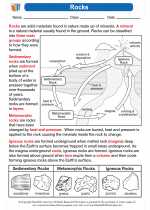 Rocks
Rocks  Worksheet/Answer key
Worksheet/Answer key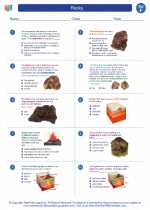 Rocks
Rocks  Worksheet/Answer key
Worksheet/Answer key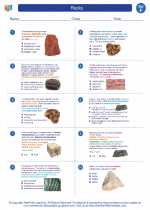 Rocks
Rocks  Worksheet/Answer key
Worksheet/Answer key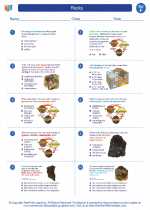 Rocks
Rocks  Worksheet/Answer key
Worksheet/Answer key Rocks
Rocks  Vocabulary/Answer key
Vocabulary/Answer key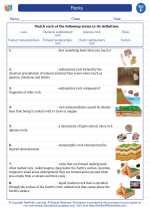 Rocks
Rocks  Vocabulary/Answer key
Vocabulary/Answer key Rocks
Rocks  Vocabulary/Answer key
Vocabulary/Answer key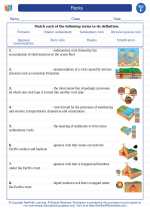 Rocks
Rocks 

 Activity Lesson
Activity Lesson
 Worksheet/Answer key
Worksheet/Answer key
 Worksheet/Answer key
Worksheet/Answer key
 Worksheet/Answer key
Worksheet/Answer key
 Worksheet/Answer key
Worksheet/Answer key
 Vocabulary/Answer key
Vocabulary/Answer key
 Vocabulary/Answer key
Vocabulary/Answer key
 Vocabulary/Answer key
Vocabulary/Answer key

The resources above cover the following skills:
EARTH AND SPACE SCIENCE
Earth’s Systems
Plan and carry out investigations that demonstrate the chemical and physical processes that form rocks and cycle Earth’s materials (e.g., processes of crystallization, heating and cooling, weathering, deformation, and sedimentation).